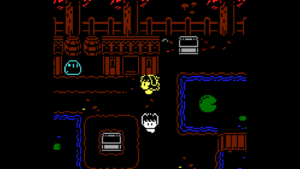Princess Remedy in a World of Hurt
 I’ve said before that I use my Steam wishlist less as a wishlist and more as an “I’ll have to remember to give that another look when it has more reviews” list. But there’s one way even Steam itself implicitly acknowledges that they’re not really wishlists: it lets you add free-to-play games to them. Although even that’s a kind of wish: “I wish I had time to play this”. I’ve accumulated a sizeable stack of such recorded intentions there over the years, and we’ve been in weirdly vague national quarantine so long now that over the weekend I decided it was finally time to give some of them a try.
I’ve said before that I use my Steam wishlist less as a wishlist and more as an “I’ll have to remember to give that another look when it has more reviews” list. But there’s one way even Steam itself implicitly acknowledges that they’re not really wishlists: it lets you add free-to-play games to them. Although even that’s a kind of wish: “I wish I had time to play this”. I’ve accumulated a sizeable stack of such recorded intentions there over the years, and we’ve been in weirdly vague national quarantine so long now that over the weekend I decided it was finally time to give some of them a try.
Of those I tried, the one that pleased me most was Princess Remedy in a World of Hurt, a one-sitting retro action-JRPG from 2014. Well, not exactly J, really — it’s clearly in the same genre as Final Fantasy, but the developer is Swedish. In fact, the developer is Ludosity, the quirky and prolific indie studio responsible for such games as Ittle Dew, Bob Came in Pieces, and Card City Nights. If you haven’t heard of Card City Nights: It’s a little bit like if you spun off the collectible card game from Final Fantasy 8 into its own game, except that instead of being themed after FF8 characters, it’s themed after the Ludosity back catalog. And that’s where I first heard of Princess Remedy.
The high concept here is that instead of killing, you’re healing. Princess Remedy is a trained medical professional, and the encounters that earn you loot are with sick or injured people who need your help. And a lot of the people you’re healing are monsters. That’s part of the joke: you go into a cave and walk up to a skeleton or a giant spider or whatever, and instead of attacking you, it tells you about its problems and you help it. In a way, it anticipated Undertale.
Now, I’ve mused before about the idea of an RPG that puts more detail into healing than hurting. That’s how it is in real life, after all. Medicine is far more complicated than combat. And yet, combat-based RPGs pretend the reverse, giving you all sorts of options for special moves in fights while reducing all healing to just saying magic words and/or administering a nostrum. So I think there’s some unused potential in the idea of a game that takes healing seriously.
Princess Remedy is not such a game. It is a very silly game, and its healing sequences are just combat with minimal window dressing: you shoot bullets that look like bandages, pills, or syringes, while attacked by the enemies that are, I suppose, representations of the ailments you’re curing. So the healing theme is skin-deep, but as skin-deep themes go, it’s still a fairly significant one! You get to do all this shooting and still, in the end, feel like you helped absolutely everyone and hurt no one. And anyway, a more convincing depiction of healing would probably work against the feel of the thing. If an injury has a realistic remedy, that means it was a real injury, and someone was really hurt. This game is too lighthearted to ever acknowledge that real hurt even exists. Quite a few of the complaints you cure are explicitly imaginary.
The end boss is very much an imitation of Final Fantasy end bosses, and in particular the final fight from Final Fantasy 6: rising up a sort of pillar of illuminated-manuscript grotesquery made flesh, towards a mock-angelic peak. Except the graphical style of the whole game is a generation or two more primitive than even Final Fantasy 1. It’s more C64-ish, made mainly of monochrome sprites in different colors on a black background. There should be a word for this kind of mixed retro. Maybe “mixed retro” will do.
Said last fight is against the myriad ailments of a very sick prince, who you’re told in advance is Princess Remedy’s age (wink, wink). And yet, afterward, when the inhabitants of Hurtland declare you queen in gratitude, you don’t have to marry him if you don’t want to. You can instead marry literally anyone in the game, regardless of gender or species, and just load into the final save and pick someone else if you change your mind. I personally married the prince’s servant on my first try, basically just because he was the closest person who wasn’t the prince, but I think the best choice is to get back together with Remedy’s ex-girlfriend from medical school, who spends the game hiding in a secret area, suffering from a broken heart, which you can cure like any other ailment. Although I can also respect any Ittle Dew fans who choose Ittle, who makes a cameo here. Sure, Ittle is entirely too young to marry, but that’s where the underlying “not taking any of this at all seriously” attitude kicks in. The effect of your choice is utterly minimal, changing just a sprite and a couple of lines in the outro cutscene, but feels important nonetheless.
I understand there’s a non-free sequel. I’ll have to give that a look.
 Comments(1)
Comments(1)